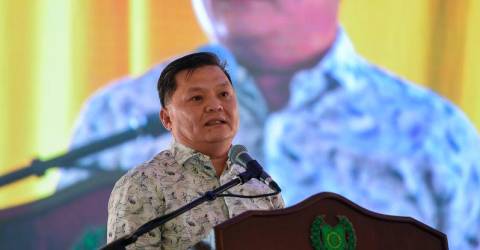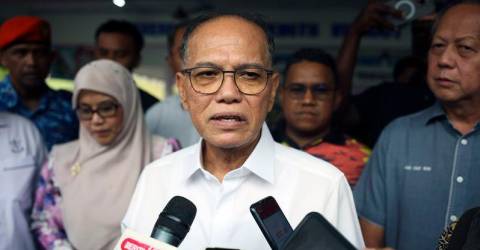ADVERTISE HERE

Bandar Kuching MP Dr Kelvin Yii
KUCHING (July 17): The amendments to the Medical Act 1971 (Act 50) is a very crucial step to resolving the ongoing parallel pathway issue, said Bandar Kuching MP Dr Kelvin Yii.
According to him, this will also address the critical shortage of medical specialists in the country by enabling both parallel pathways and master’s programmes to run concurrently, which addresses the gap between these two routes to specialisation.
“Through the amendment, the duty of recognising and ensuring the standards for medical specialty training in Malaysia is placed upon the Malaysian Medical Council (MMC), who will be responsible for all medical specialisation matters.
“I welcome such amendment as it is important to give room for the medical professionals’ fraternities and specialist societies, who know and understand the needs and quality needed on the ground, to decide the capacity and competency of those specialists on training in partnership with recognised and prestigious overseas medical establishments,” he said in a statement.
He added that proper implementations, transparent oversight as well as a check-and-balance mechanism are needed in order to strengthen the country’s healthcare system without unintended consequences that may jeopardise quality of care.
“With such power to MMC under this framework, the first step for proper oversight is to see reforms within MMC itself.
“While the amendments we see today did improve the composition of MMC itself, including adding more representation of Sabah and Sarawak, there is also a need for reforms to increase transparency in the (MMC) decision-making process.
“This includes greater transparency in publicly publishing decisions made by the Medical Education Committee (MEC), such as justifications and clear chronology of events in recognising or de-recognising a medical qualification, be it undergraduate or postgraduate qualifications,” he said.
Dr Yii also said that postgraduate qualifications, decision and consideration of the Specialty Subcommittees for Education (SSC-Edu) should be made available in the public domain.
“Through this, they can stay accountable and provide justifications to their decisions,” he said.
In addition, he said the election process of the MMC would need to be reformed whereby its voting system via postal ballots is outdated and should be simplified through digitalisation, in line with the Health Ministry’s digital health transformation agenda.
“The inconvenience of casting a ballot is discouraging the fraternity from voting, with only 10 per cent votes from the close to 70,000 registered medical practitioners during each election. Voting results should also be transparently published.
“More importantly, we must increase the composition of the MMC council to consist of at least 80 per cent elected representatives,” he said.
He said at present, only 17 out of the 33 MMC members are elected, with the remaining 16 being appointed positions.
“This is important as many powers have been given to MMC members to make important decisions, thus a majority of them should be kept accountable by own fraternity through an election process.”
He also suggested for a representation from the Academy of Medicine Malaysia (AMM) in MMC to represent their voice and act as an oversight by the medical societies in the board.
“On top of that, the top position of AMM, which is the ‘Master’, is also elected and accountable to the members of these societies.
“All these may be the first few steps for reforms to give better oversight to ensure better outcomes and I believe that these amendments, coupled with proper implementation and oversight, will strengthen our healthcare system and benefit the nation as a whole,” said Dr Yii.

 1 year ago
160
1 year ago
160



 English (US) ·
English (US) ·